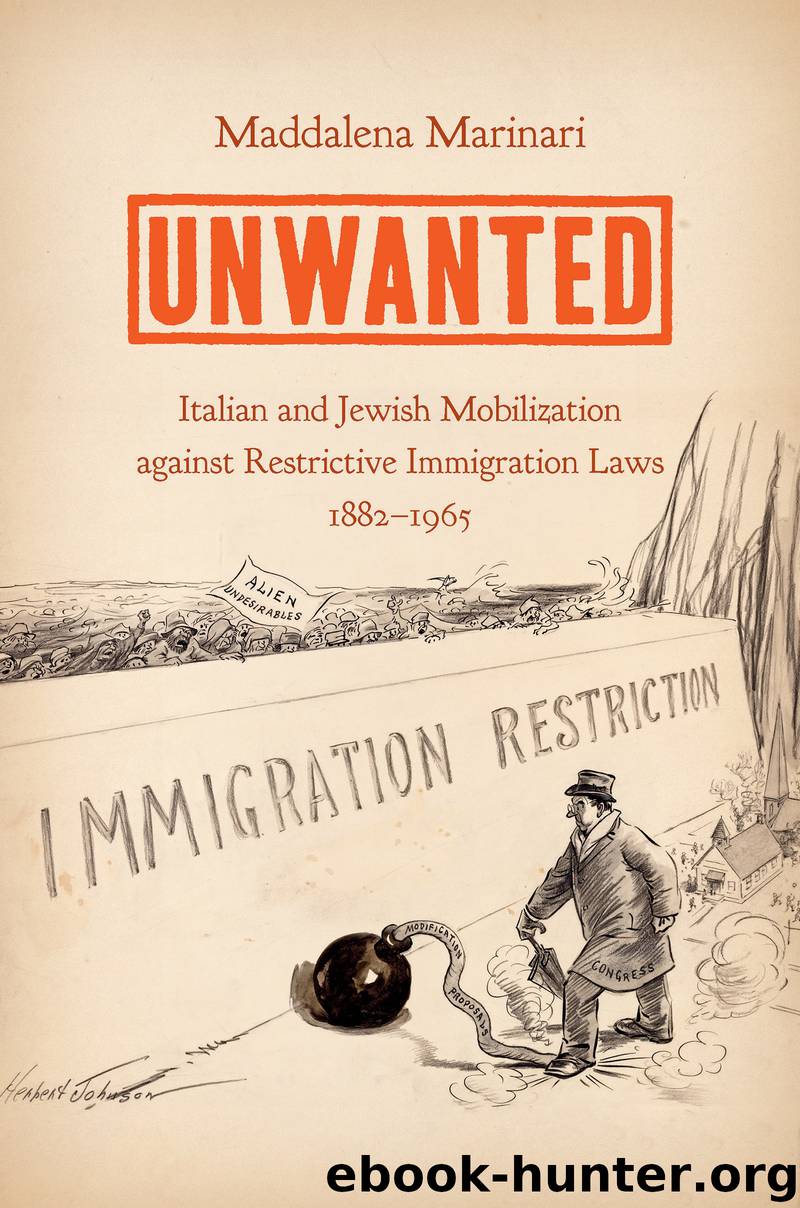Unwanted by Maddalena Marinari

Author:Maddalena Marinari
Language: eng
Format: epub
Publisher: The University of North Carolina Press
Working to Overcome an Imperfect Law: The 1953 Refugee Relief Act
As had happened with every new piece of major legislation passed, immigration reform activists again had to overcome red tape when the 1953 Refugee Relief Act went into effect. ACIM regularly complained about the “constant delays, needless administration pitfalls and many complex ‘safeguards’ in the name of ‘security.’ ”80 While many activists had accepted a flawed act because it represented progress, they had hoped that its implementation would go smoothly, but they again had to contend with nativist bureaucrats at the U.S. State Department. As it had done for most of the 1930s, the department added further requirements to regulate the refugee flow. Revealing longstanding stereotypes about radicals abusing the refugee system to enter the United States and then undermine U.S. democracy, State Department officials declared that the additional provisions were in place “to prevent subversives from taking advantage of the refugee operation.”81 These early efforts of aggressive examination of refugees underscore the prehistory of the intricate web of checks and controls many refugees undergo today, making them the most scrutinized groups ever to try to enter the United States. The additional provisions exemplified another tool of remote control that made it difficult for immigration reform advocates to intercede on their behalf. In response, Italian and Jewish leaders and relocation agencies worked to find sponsorships, searched for alternative destinations, and continued to lobby the U.S. Congress for more piecemeal immigration reform.
While finding sponsorships in the U.S. for prospective refugees contributed to the success of the act, it also concentrated a lot of power in fewer organizations. Working with Monsignor Swanstrom and the nationwide web of ethnic and religious agencies with which he collaborated, ACIM launched a national campaign and secured 45,000 job and housing assurances for Italian immigrants who qualified under the 1953 act.82 ACIM’s success pushed aside other Italian American organizations and advocacy groups. After months of bickering, UNICO, the American Resettlement Council for Italian Refugees (an impromptu organization created by Fortune Pope and supported by the Order Sons of Italy), and the Comitato Italiano Pro Profughi Stati Uniti (an Italian refugee agency in Rome) all decided to work with ACIM to coordinate assurances for employment and housing and the reception and resettlement of Italian refugees.83 Similarly, HIAS, the United Service for New Americans, and the Joint Distribution Committee merged to become the United HIAS Service to pool their resources and serve Jewish refugees and immigrants more effectively.84 Most of the new agency’s work, like ACIM’s, initially went into securing work and housing assurances for applicants that qualified under the 1953 Refugee Relief Act and collaborating with local communities for refugees’ integration, rehabilitation, and naturalization.85
When relocating refugees in the United States failed, Italian and Jewish organizations searched for alternative destinations. The United HIAS Service opened new offices in more than forty countries to work with refugee families.86 Thanks to this vast network and decades of experience assisting refugees and migrants, it successfully relocated Jewish refugees in Australia, China, Israel, and Central and South America.
Download
This site does not store any files on its server. We only index and link to content provided by other sites. Please contact the content providers to delete copyright contents if any and email us, we'll remove relevant links or contents immediately.
The Secret History by Donna Tartt(19090)
The Social Justice Warrior Handbook by Lisa De Pasquale(12190)
Thirteen Reasons Why by Jay Asher(8912)
This Is How You Lose Her by Junot Diaz(6887)
Weapons of Math Destruction by Cathy O'Neil(6281)
Zero to One by Peter Thiel(5802)
Beartown by Fredrik Backman(5755)
The Myth of the Strong Leader by Archie Brown(5508)
The Fire Next Time by James Baldwin(5446)
How Democracies Die by Steven Levitsky & Daniel Ziblatt(5219)
Promise Me, Dad by Joe Biden(5153)
Stone's Rules by Roger Stone(5088)
A Higher Loyalty: Truth, Lies, and Leadership by James Comey(4964)
100 Deadly Skills by Clint Emerson(4926)
Rise and Kill First by Ronen Bergman(4789)
Secrecy World by Jake Bernstein(4753)
The David Icke Guide to the Global Conspiracy (and how to end it) by David Icke(4720)
The Farm by Tom Rob Smith(4514)
The Doomsday Machine by Daniel Ellsberg(4490)
